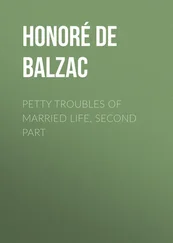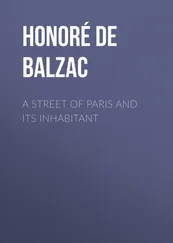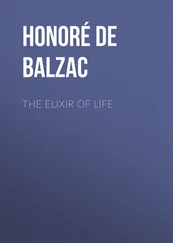Honoré Balzac - A Start in Life
Здесь есть возможность читать онлайн «Honoré Balzac - A Start in Life» — ознакомительный отрывок электронной книги совершенно бесплатно, а после прочтения отрывка купить полную версию. В некоторых случаях можно слушать аудио, скачать через торрент в формате fb2 и присутствует краткое содержание. Жанр: literature_19, foreign_antique, foreign_prose, на английском языке. Описание произведения, (предисловие) а так же отзывы посетителей доступны на портале библиотеки ЛибКат.
- Название:A Start in Life
- Автор:
- Жанр:
- Год:неизвестен
- ISBN:нет данных
- Рейтинг книги:4 / 5. Голосов: 1
-
Избранное:Добавить в избранное
- Отзывы:
-
Ваша оценка:
- 80
- 1
- 2
- 3
- 4
- 5
A Start in Life: краткое содержание, описание и аннотация
Предлагаем к чтению аннотацию, описание, краткое содержание или предисловие (зависит от того, что написал сам автор книги «A Start in Life»). Если вы не нашли необходимую информацию о книге — напишите в комментариях, мы постараемся отыскать её.
A Start in Life — читать онлайн ознакомительный отрывок
Ниже представлен текст книги, разбитый по страницам. Система сохранения места последней прочитанной страницы, позволяет с удобством читать онлайн бесплатно книгу «A Start in Life», без необходимости каждый раз заново искать на чём Вы остановились. Поставьте закладку, и сможете в любой момент перейти на страницу, на которой закончили чтение.
Интервал:
Закладка:
This mother was in every way completed by the son, so that the son would not be understood without the mother. If the mother condemned herself to mended gloves, the son wore an olive-green coat with sleeves too short for him, proving that he had grown, and might grow still more, like other adults of eighteen or nineteen years of age. The blue trousers, mended by his mother, presented to the eye a brighter patch of color when the coat-tails maliciously parted behind him.
“Don’t rub your gloves that way, you’ll spoil them,” she was saying as Pierrotin appeared. “Is this the conductor? Ah! Pierrotin, is it you?” she exclaimed, leaving her son and taking the coachman apart a few steps.
“I hope you’re well, Madame Clapart,” he replied, with an air that expressed both respect and familiarity.
“Yes, Pierrotin, very well. Please take good care of my Oscar; he is travelling alone for the first time.”
“Oh! so he is going alone to Monsieur Moreau!” cried Pierrotin, for the purpose of finding out whether he were really going there.
“Yes,” said the mother.
“Then Madame Moreau is willing?” returned Pierrotin, with a sly look.
“Ah!” said the mother, “it will not be all roses for him, poor child! But his future absolutely requires that I should send him.”
This answer struck Pierrotin, who hesitated to confide his fears for the steward to Madame Clapart, while she, on her part, was afraid of injuring her boy if she asked Pierrotin for a care which might have transformed him into a mentor. During this short deliberation, which was ostensibly covered by a few phrases as to the weather, the journey, and the stopping-places along the road, we will ourselves explain what were the ties that united Madame Clapart with Pierrotin, and authorized the two confidential remarks which they have just exchanged.
Often – that is to say, three or four times a month – Pierrotin, on his way to Paris, would find the steward on the road near La Cave. As soon as the vehicle came up, Moreau would sign to a gardener, who, with Pierrotin’s help, would put upon the coach either one or two baskets containing the fruits and vegetables of the season, chickens, eggs, butter, and game. The steward always paid the carriage and Pierrotin’s fee, adding the money necessary to pay the toll at the barriere, if the baskets contained anything dutiable. These baskets, hampers, or packages, were never directed to any one. On the first occasion, which served for all others, the steward had given Madame Clapart’s address by word of mouth to the discreet Pierrotin, requesting him never to deliver to others the precious packages. Pierrotin, impressed with the idea of an intrigue between the steward and some pretty girl, had gone as directed to number 7 rue de la Cerisaie, in the Arsenal quarter, and had there found the Madame Clapart just portrayed, instead of the young and beautiful creature he expected to find.
The drivers of public conveyances and carriers are called by their business to enter many homes, and to be cognizant of many secrets; but social accident, that sub-providence, having willed that they be without education and devoid of the talent of observation, it follows that they are not dangerous. Nevertheless, at the end of a few months, Pierrotin was puzzled to explain the exact relations of Monsieur Moreau and Madame Clapart from what he saw of the household in the rue de la Cerisaie. Though lodgings were not dear at that time in the Arsenal quarter, Madame Clapart lived on a third floor at the end of a court-yard, in a house which was formerly that of a great family, in the days when the higher nobility of the kingdom lived on the ancient site of the Palais des Tournelles and the hotel Saint-Paul. Toward the end of the sixteenth century, the great seigneurs divided among themselves these vast spaces, once occupied by the gardens of the kings of France, as indicated by the present names of the streets, – Cerisaie, Beautreillis, des Lions, etc. Madame Clapart’s apartment, which was panelled throughout with ancient carvings, consisted of three connecting rooms, a dining-room, salon, and bedroom. Above it was the kitchen, and a bedroom for Oscar. Opposite to the entrance, on what is called in Paris “le carre,” – that is, the square landing, – was the door of a back room, opening, on every floor, into a sort of tower built of rough stone, in which was also the well for the staircase. This was the room in which Moreau slept whenever he went to Paris.
Pierrotin had seen in the first room, where he deposited the hampers, six wooden chairs with straw seats, a table, and a sideboard; at the windows, discolored curtains. Later, when he entered the salon, he noticed some old Empire furniture, now shabby; but only as much as all proprietors exact to secure their rent. Pierrotin judged of the bedroom by the salon and dining-room. The wood-work, painted coarsely of a reddish white, which thickened and blurred the mouldings and figurines, far from being ornamental, was distressing to the eye. The floors, never waxed, were of that gray tone we see in boarding-schools. When Pierrotin came upon Monsieur and Madame Clapart at their meals he saw that their china, glass, and all other little articles betrayed the utmost poverty; and yet, though the chipped and mended dishes and tureens were those of the poorest families and provoked pity, the forks and spoons were of silver.
Monsieur Clapart, clothed in a shabby surtout, his feet in broken slippers, always wore green spectacles, and exhibited, whenever he removed his shabby cap of a bygone period, a pointed skull, from the top of which trailed a few dirty filaments which even a poet could scarcely call hair. This man, of wan complexion, seemed timorous, but withal tyrannical.
In this dreary apartment, which faced the north and had no other outlook than to a vine on the opposite wall and a well in the corner of the yard, Madame Clapart bore herself with the airs of a queen, and moved like a woman unaccustomed to go anywhere on foot. Often, while thanking Pierrotin, she gave him glances which would have touched to pity an intelligent observer; from time to time she would slip a twelve-sous piece into his hand, and then her voice was charming. Pierrotin had never seen Oscar, for the reason that the boy was always in school at the time his business took him to the house.
Here is the sad story which Pierrotin could never have discovered, even by asking for information, as he sometimes did, from the portress of the house; for that individual knew nothing beyond the fact that the Claparts paid a rent of two hundred and fifty francs a year, had no servant but a charwoman who came daily for a few hours in the morning, that Madame Clapart did some of her smaller washing herself, and paid the postage on her letters daily, being apparently unable to let the sum accumulate.
There does not exist, or rather, there seldom exists, a criminal who is wholly criminal. Neither do we ever meet with a dishonest nature which is completely dishonest. It is possible for a man to cheat his master to his own advantage, or rake in for himself alone all the hay in the manger, but, even while laying up capital by actions more or less illicit, there are few men who never do good ones. If only from self-love, curiosity, or by way of variety, or by chance, every man has his moment of beneficence; he may call it his error, he may never do it again, but he sacrifices to Goodness, as the most surly man sacrifices to the Graces once or twice in his life. If Moreau’s faults can ever be excused, it might be on the score of his persistent kindness in succoring a woman of whose favors he had once been proud, and in whose house he was hidden when in peril of his life.
This woman, celebrated under the Directory for her liaison with one of the five kings of that reign, married, through that all-powerful protection, a purveyor who was making his millions out of the government, and whom Napoleon ruined in 1802. This man, named Husson, became insane through his sudden fall from opulence to poverty; he flung himself into the Seine, leaving the beautiful Madame Husson pregnant. Moreau, very intimately allied with Madame Husson, was at that time condemned to death; he was unable therefore to marry the widow, being forced to leave France. Madame Husson, then twenty-two years old, married in her deep distress a government clerk named Clapart, aged twenty-seven, who was said to be a rising man. At that period of our history, government clerks were apt to become persons of importance; for Napoleon was ever on the lookout for capacity. But Clapart, though endowed by nature with a certain coarse beauty, proved to have no intelligence. Thinking Madame Husson very rich, he feigned a great passion for her, and was simply saddled with the impossibility of satisfying either then or in the future the wants she had acquired in a life of opulence. He filled, very poorly, a place in the Treasury that gave him a salary of eighteen hundred francs; which was all the new household had to live on. When Moreau returned to France as the secretary of the Comte de Serizy he heard of Madame Husson’s pitiable condition, and he was able, before his own marriage, to get her an appointment as head-waiting-woman to Madame Mere, the Emperor’s mother. But in spite of that powerful protection Clapart was never promoted; his incapacity was too apparent.
Читать дальшеИнтервал:
Закладка:
Похожие книги на «A Start in Life»
Представляем Вашему вниманию похожие книги на «A Start in Life» списком для выбора. Мы отобрали схожую по названию и смыслу литературу в надежде предоставить читателям больше вариантов отыскать новые, интересные, ещё непрочитанные произведения.
Обсуждение, отзывы о книге «A Start in Life» и просто собственные мнения читателей. Оставьте ваши комментарии, напишите, что Вы думаете о произведении, его смысле или главных героях. Укажите что конкретно понравилось, а что нет, и почему Вы так считаете.












